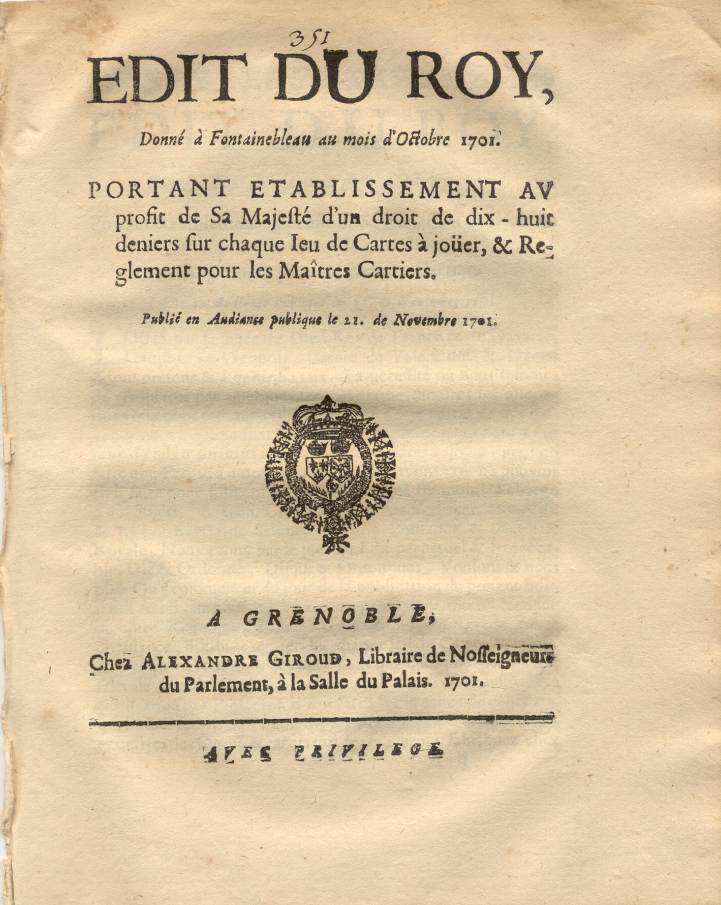
-0-
A HISTORIC DOCUMENT
The document is an extract from the
Court in Grenoble, published with priority ("avec privilege") on the
21st November 1701 by Alexandre Giroud, librarian of the Parliament. The publication contains the establishment of a tax for playing cards,
as recorded in the original Edict, published in October 1701 in
Fontainebleau.
It's interesting to see how this is decribed in a legislative text and
how possible loop-holes in the legislation have been forseen and
dealed with. The document also gives an insight in how the law-enforcement was
organised during the reign of Louis XIV, the Sun King, from 1643 until
1715. But it also refers to new figures to be introduced on the court
cards.
The text is in "old" French and certain ancient French
titles are used. They have been translated in a strict manner in order to stay close to
the original text. It was also interesting to see how certain words, like the
"Ieu de cartes à joüer", were spelled or to find that in the old
French an f-like letter was used in certain words for the "s", just like in old German
texts.
In the English translation, I've kept to the original interpunction
and use of capitals. And I haven't tried to smoothen the legislative text, so
sometimes some re-reading may be necessary.

Before
continuing there are a two terms that are used in the French text and that need some
additional information:
-- "Fermier"
has been translated here in a strict manner as "Farmer", but this
Farmer has nothing to do with our present conception of a farmer. The old French title refers to
what we would now call a tax-collector.
--
"18 Deniers" = 1,5 sou = 7,50 centimes. In the Dutch Kramer dictionary for French-Dutch 1 denier is described as 1/12 sou and 1 sou as 5
centimes. Too bad that I don't know how much this was in those days, compared to
a general income of a labourer, nor do I have any idea about the price of a deck
of cards in those days. So it's impossible to make a judgement about the
harshness of this tax, although Louis thought it was "modique"......
modest.
In the text the exact reason for this tax remains obscure, but it was
most likely inspired by the start of the Spanish Succession War on September 7th
1701.
Although neither French nor English are my native languages, I still hope that I've been able to produce a truthful and conscientious translation. Should there be any visitors, that can point out mistakes, I'll be happy to replace them here with a more correct translation.
Joop Muller